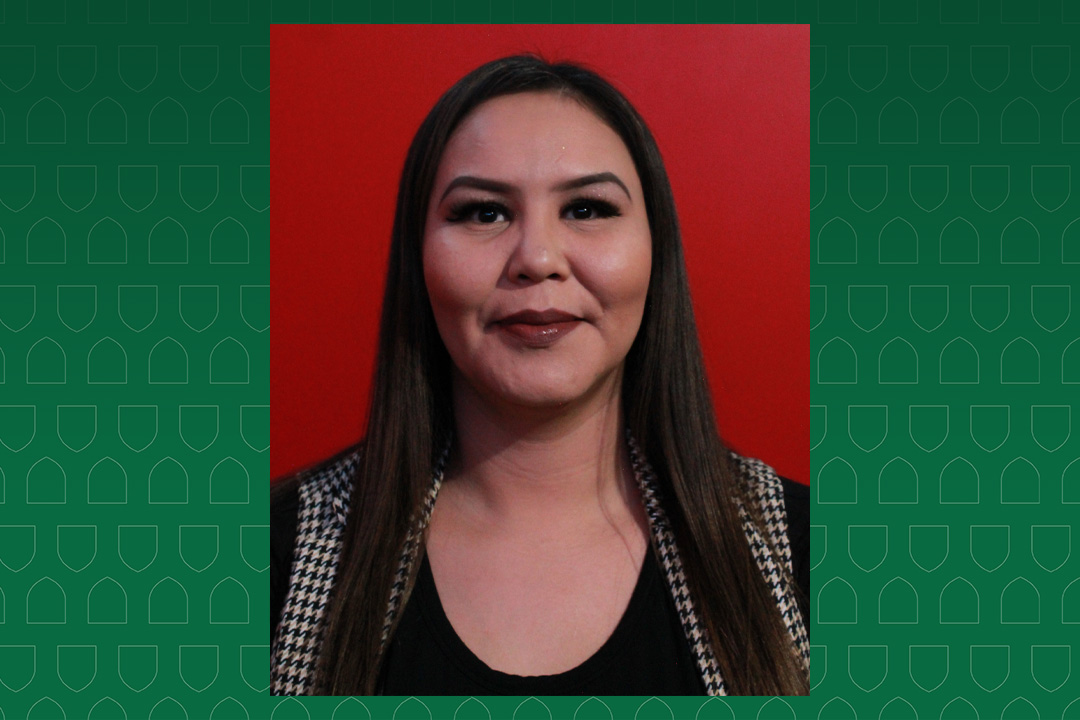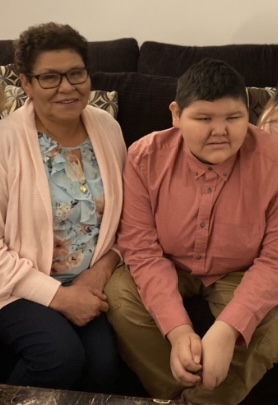
ITEP student follows in mother’s footsteps, sets path for her community
Jessica McDonald is working to bring back the core teachings of the Denesuline heritage.
By John ShellingMcDonald was raised in Black Lake, SK. Her journey to seeking an education degree was inspired by her mother, Helen Robillard, who just retired in Black Lake after more than 30 years as an educational assistant and has worked in the field of special education and shared the gifts of working with youth. When Jessica had her son, he was diagnosed with a rare condition and her mother’s work helped to provide the care and needs of not only her son, but all her children. She wants to continue her work as an Indigenous educator and provide services in special education to children, specifically in the North as a community member.
McDonald was recognized with an award for research at the University of Saskatchewan (USask) Indigenous Student Achievement Awards, which were held virtually on March 10, 2022, to honour USask Indigenous students for their academic excellence, leadership, research, community engagement and resiliency.
The award ceremony was part of Indigenous Achievement Week (IAW), which celebrated the successes and contributions of Métis, First Nations and Inuit students, staff and faculty. We asked McDonald a few questions about her journey at USask.
Why did you choose ITEP?
I chose ITEP because they offer a culturally appropriate program and that will benefit my career path in the future, and I have family members that are teachers who graduated from ITEP that have influenced me to go here.

You are receiving an award for research; can you talk about what you are researching and why it’s important to you?
I am focusing on restoring the Denesuline language and cultural teachings. To teach and restore the mythical stories, legends that are passed down through oratures for generations to come. I want to bring back the core teachings of the Denesuline heritage. It is important to me because I believe that the new generations are slowing losing sight of our language and their Denesuline identity.
Your mom has been an important part of your education journey, can you talk about her legacy and how you hope to continue it?
For the past thirty-seven years in the education system, my mother has always showed up not only for herself, for her family but also, for her community. One of the many reasons why she has worked so hard all these years is because she wears her heart on her sleeves. She would pay out of her own money to provide snacks for those who come to school hungry, so her students wouldn’t be hungry during the day. Her passion was working with children with special needs. She made an enormous impact on my life. I saw how dedicated she was when she cared for children with needs and that she never gave up hope when working with the children. My mother has inspired me and continues to always believe in me. She is my number one supporter.
What are your goals for the future?
My future goals are to obtain the degree in Bachelor of Indigenous Teacher Education and add more experience to specialize in special education. I visualize myself working in my home community and working in the field of education and implementing the Denesuline language and traditional teachings in my work plan.
What advice would you give to a first-year student in education?
Never hesitate to ask for help when you think you’re alone or stuck on any of your assignments. The campus has a wonderful team to help and are very understanding when it comes to help. We are here to learn and not to be afraid to reach out.
Is there anything you’d like to share?
I just wanted to say, work hard, believe in yourself and to be proud of your identity. Your language is important and use it to help you get through life and it will help you along the way in your journey to success.

